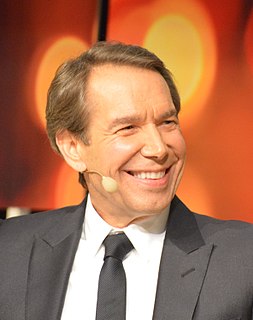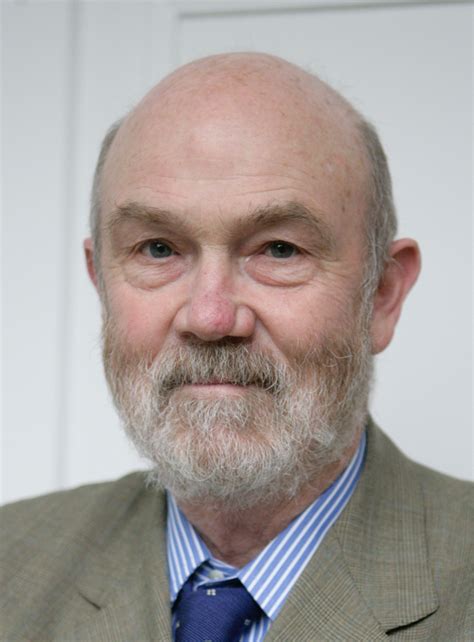A Quote by Jeff Koons
People have different ideas, emotional ideas, of what certain words mean, and they think of irony as something that's more associated with being cynical-it's kind of a put-down.
Related Quotes
I think there's something in collaboration - the fact that you can sit there and bounce ideas off of someone. It definitely matters who the person is, because certain people... The act of collaboration, where you can talk to someone, hang out, get ideas going, there is something in that. That's similar between everyone. But I think every individual collaborator is different, because they have different brains and emotions and ways of working, so it changes. Definitely.
I sell ideas. Actually, if you think about it, everything is really no more than idea. The past is nothing more than a memory, which is one kind of idea. The future is still a hope, another kind of idea. The present is fleeting and becomes a memory before you can put your hands on it. All ideas. I sell ideas.
If you write, good ideas must come welling up into you so that you have something to write. If good ideas do not come at once, or for a long time, do not be troubled at all. Wait for them. Put down little ideas no matter how insignificant they are. But do not feel, any more, guilty about idleness and solitude.
The words represent ideas first of all. That is something you have to understand. I mean, it is not just an object, but it is an object with a history and it is loaded with all kinds of implications and ideas. They exist in the world in a very special way. So they kind of represent some aspect of the world that we perceive, as do photographs, as do drawings of trees or whatever. And they are not a one to one. They are not the world, but they kind of refer to the world and they also exist in the world.
I think leaders lead themselves, but leaders have ideas and maybe they're visionary ideas. Probably today, people would say Steve Jobs was a visionary because he invented this little gadget, the cell phone. But he didn't invent cell phones, and he didn't design the cell phone. He just took a couple of ideas and put them together, and no one else put those same ideas together as successfully as he did. But he had something that he was trying to do that intrigued him, and he could do it very well.
Popper and Nabokov are very different people in some ways - and I'm ready to devote large chunks of my life to both of them. Popper didn't think much of words but thought ideas mattered, and Nabokov didn't think much of ideas, but words mattered, and so on. But both of them had a sense that this is a world of infinite discovery, unending discovery. That quest to discover more in any direction is what I think drives me, and what drives humans, when they're doing the most interesting things.
There are more ideas on earth than intellectuals imagine. And these ideas are more active, stronger, more resistant, more passionate than "politicians" think. We have to be there at the birth of ideas, the bursting outward of their force: not in books expressing them, but in events manifesting this force, in struggles carried on around ideas, for or against them. Ideas do not rule the world. But it is because the world has ideas (and because it constantly produces them) that it is not passively ruled by those who are its leaders or those who would like to teach it, once and for all, what it must think.
People are interested in certain ideas, in certain periods, and then that moves, and okay, now people are more interested in studying this, and there is no perfect balance, and how would you know what the perfect balance is? I mean, what does it mean to have too many Beethoven chairs and too few Stravinsky chairs? I mean, that's kind of a value judgment that isn't really based on humility. We don't know what the optimum number is, so let people figure this out on their own. People are more interested in Beethoven than Stravinsky? Great! Why would that bother me?








































